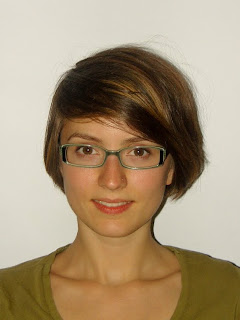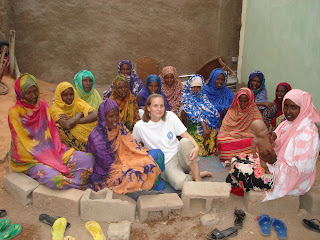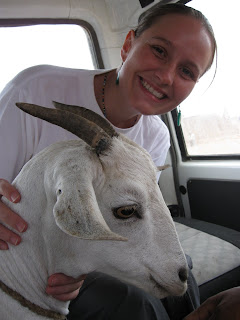12th July 2010
© Stéphanie Lelong
Six months after the earthquake, as the hurricane season begins, the timing for Haiti's reconstruction remains critical. Doctors of the World calls for the funds promised by the international community to be used to provide a truly equitable healthcare system
Our work has helped to limit the effect of the disaster on health, but the living conditions for the 1.3 million disaster victims in Port-au-Prince and the surrounding region are extremely difficult.
For many, the daily situation is not improving but getting worse as food distribution comes to an end. We still have our teams in Haiti and with the emergency phase over we continue to work to ease the desperate situation the Haitians face caused by epidemics and malnutrition. However, to date, only a few hundred million dollars of the $10 billion pledged has actually been paid by various countries and donors. It is high time that these promises were kept; things need to move faster.
The $10 billion dollars in aid pledged by the international community at a conference in New York in March would provide for and allow the implementation of a health care system which is more equitable in terms of cost and carried out in the poorest and least accessible districts. The clinics set up by us in the emergency context could then make a permanent commitment to providing a new quality of health care for the poorest Haitians.
Our actions have helped limit the effects of the disaster on health.
There has been no spread of contagious diseases. There have been few cases of malaria and typhoid diagnosed. There has been mass vaccination of children and infants. We have also tracked and managed cases of moderate or severe malnutrition. We have also made it possible for thousands of Haitians to have their first real access to care. Before the earthquake, more than 60% of the population had no access to care. Today, 5,000 free medical consultations are conducted each week by our teams in 10 clinics in tents set up in the poorest districts. Sadly, it remains difficult to refer a patient for treatment at a hospital and transfers between hospital services are very complicated.
Six months after the earthquake hit, the psychological effects are still felt, the Haitians are still suffering. People are having trouble overcoming the trauma, as Dr Emanuela explains:
"Every morning people come to see me for imaginery illnesses, there seems to be nothing wrong but if you ask questions they say they can'ty sleep, can't eat, that they are constantly reliving the 52 seconds during the earthquake."
For this reason psychological support must continue beyong the emergency phase. Mental health support must be fully integrated into the Haitian healthcare reconstruction plan.
We aren't just working in the capital Port-au-Prince; here is a recap of our international network projects across the country:
In Port au Prince
Doctors of the World is active in 10 locations in Port au Prince: St Michel, Carrefour Feuille, Cité Georges, Canapé Vert, Automeca, Delmas, Solino, Saint-Marc, Miron and the Mahotière, covering a population of about 123,000 people. The teams provide primary health care, reproductive health (antenatal, postnatal, family planning, gynaecology), detection of malnutrition, immunization and psychosocial activities. Since the beginning of the emergency, more than 71,000 primary health care consultations have been provided.
In Cité Soleil
We set up three mobile clinics in 16 displaced persons camps and we support the Choscal hospital. Since January, more than 21,000 patient consultations and 4,800 psychosocial counselling sessions have been provided and more than 18,000 people have been immunized. Meanwhile, individual and group interviews, community and prevention activities have been offered: adults have already held 75 discussion groups and 725 workshops have welcomed Cité Soleil children. 20,000 people have also participated in educational and health risk awareness activities and 90,000 condoms have been distributed.
In Sonapi
We ran a clinic in the Sonapi camp that saw 200 patients per day, and two clinics in the Croix de Bouquettes and the Lycée Jacques Premier camps. This facility closed in June.
© Stéphanie Lelong
In Carrefour Feuille
We ran a clinic which provided nearly 300 consultations per week: healthcare and maternal-child health, health education, immunizations etc. This closed in June.
In Petit Goâve
At Hôpital Notre Dame of Petit Goâve we have been supporting maternity and paediatric units through a sexual and reproductive health programme which includes: healthcare personnel (gynaecologists, midwives, healthcare assistants) training and capacity building, providing medicines, modern medical equipment and gynaecology equipment, reconstructing buildings and assistinh in antenatal preparation for childbirth.
In addition, we have six dispensaries in the remote region of Petit Goâve to ensure the most isolated people are cared for, particularly children under five years of age and pregnant women. Our programme focussed on: family planning, antenatal and postnatal consultations, health education, family planning, training of staff etc.
In Grand and Petit Goâve, we are providing a primary healthcare and nutrition programme as well as supporting four dispensaries located in rural areas of Grand Goâve and in Petit and Grand Goâve. We also giving support for different levels of acute severe malnutrition. Between January and May, 714 children were registered at this centre. Meanwhile, advocacy and prevention are offered to communities, particularly focussing on maternal and child health.
In Grande Anse
With the influx of new comers to the area after the earthquake, Doctors of the World France strengthened its existing programme and currently offers free treatment at 12 health centres in the region. Since February, these centres have provided an average of 8,730 consultations per month; nearly three times more than in the months before the earthquake. All services provided are free to all. We had more than 2,000 consultations for children under five years old. Furthermore, in order to relieve the dispensaries and reach isolated populations, two mobile clinics visit the most remote areas. On average 630 consultations are provided per week; 16% of the patients are displaced persons. Finally, special attention is given to screening and treatment for malnutrition.
Our work would simply not be possible without your support. Thank you for helping us to react quickly in a crisis and care for the most vulnerable.







































